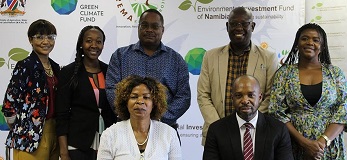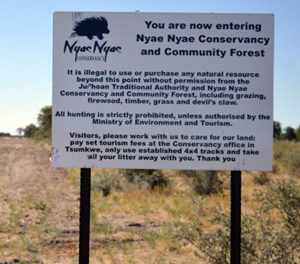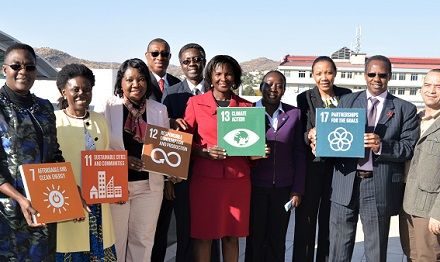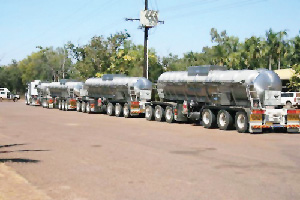
Swakopmund hosts marine scientists
By Comfort Ajibola
[email protected]
At the opening of the official third global Large Marine Ecosystem Conference, which happened earlier in October, Permanent Secretary of the Ministry of Fisheries and Marine Resources, Ulitala Hiveluah underlined the importance of the Benguela Current.
Said Hiveluah, “We are fully aware of the treasures that the Benguela Current brings to our shores.
As you may know, we have the most valuable marine diamond resources in the world. Namibia is well known for the excellent quality gems that are mined from the sea floor; we also have valuable oil and gas resources which we are only now beginning to tap.”
Hiveluah explained that the country has strongly supported the idea of ecosystem-based management and is driving a force behind the formation and development of the Benguela Current Large Marine Ecosystem (BCLME) Programme and, latterly, the Benguela Current Commission.
“I am proud to say that, as a region, the BCLME is moving steadily towards joint fisheries surveys and management plans,” she said.
After the three-day Global Large Marine Ecosystem Conference, the Sixth Annual Science Forum of the Benguela Current Commission (BCC) followed, last week. The Hon. Minister of Fisheries and Marine Resources, Bernard Esau opened the event.
The Science Forum is an annual event that attracts marine scientists from Angola, Namibia and South Africa, as well as their collaborators in other parts of the world, most notably Norway and Germany.
At the Forum, scientists report back on their studies of Benguela Current Large Marine Ecosystem. The studies are multi-sectoral and implemented under the auspices of the commission, with funding from a range of international partners.
The conference attracted 150 natural and social scientists who came together to share results of LME projects that are being implemented in Africa, Asia, Latin America, the Arctic and Eastern Europe.
“We are delighted that many of the delegates from the Global LME Conference have chosen to also attend the BCC Science Forum,” said Dr Hashali Hamukuaya, Executive Secretary of the Benguela Current Commission.
“We look forward to learning from their international experience and also to sharing some of the important strides the Commission has taken in the field of marine science over the past five years,” he said.
A five-year, Norwegian-funded BCC Science Programme recently came to an end and in August the governments of Angola, Namibia and South Africa formulated and adopted a new, five-year Strategic Implementation Programme that includes a number of scientific activities.
These activities are based on eight policy actions that are necessary to address the environmental problems and issues that threaten the health of the Benguela Current Large Marine Ecosystem, and to optimise opportunities for social and economic development.












































